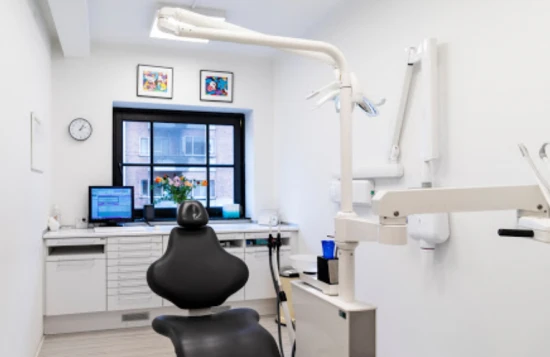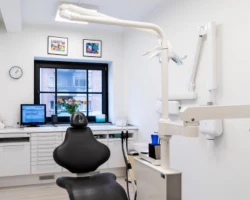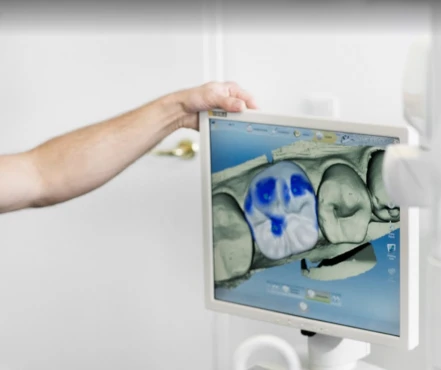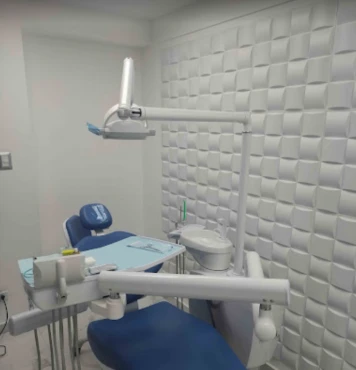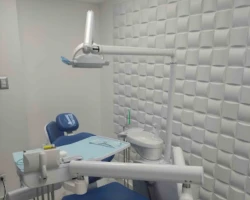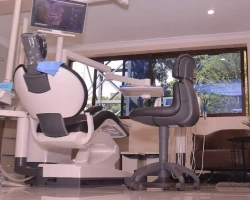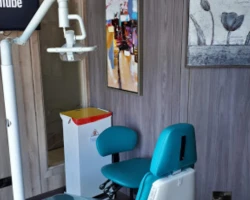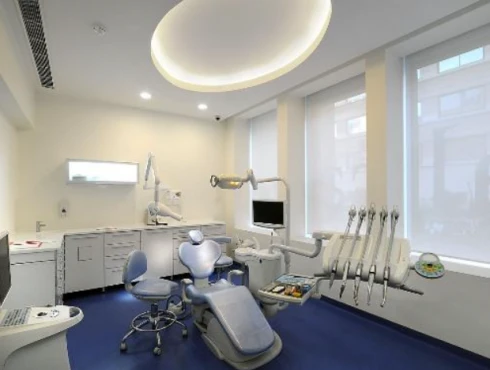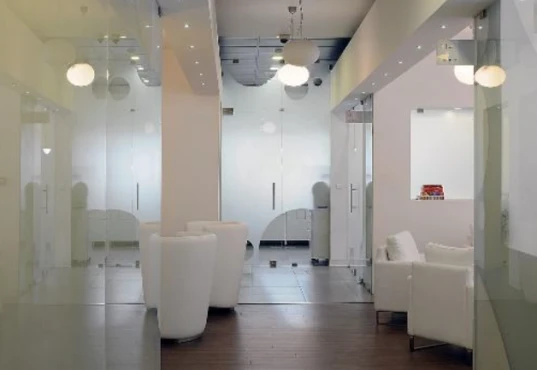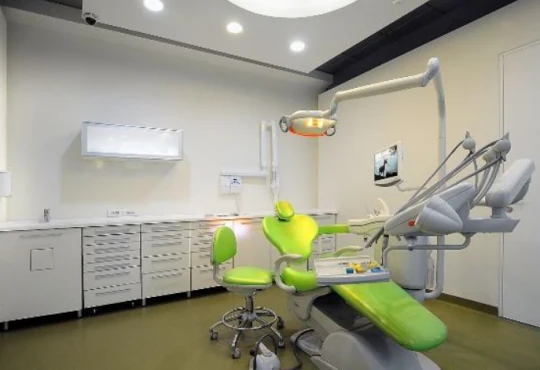Is Lingual Frenectomy in clinics a safe & recommended procedure?
Lingual Frenectomy is a simple and quick procedure for the treatment of tongue-tie. It provides benefits of improved speech, articulation, feeding, and boosting self-confidence.
In this article, you will learn about what is the need for lingual frenectomy in tongue-tie patients. How this procedure is performed? You will also learn to choose a well-qualified, experienced surgeon and important recovery guidelines.
Lingual frenectomy is a minimally invasive procedure for removing the frenulum of the tongue. Frenotomy on the other hand involves making an incision in the frenulum making it less tight. Frenulum is a band of connective tissue that connects the tongue's undersurface to the mouth's base. In some people, this frenulum is either too short or too tight, which is called tongue-tie or ankyloglossia. Ankyloglossia is a congenital disorder, meaning it appears at birth in infants. The prevalence of tongue-tie in infants is 4.2%. The tongue is an important organ, that helps in speech. If the frenulum is short, the movements of the tongue are restricted. This causes difficulty in speech, articulation, and maintenance of oral hygiene. In infants, it causes difficulty in breastfeeding. Lingual frenectomy is an effective procedure to treat tongue ties. This procedure increases the mobility of the tongue by cutting the frenulum.
Why lingual frenectomy is necessary?
As tongue-tie is present since birth, it causes problems at infant age, at child age, and in adults if not treated. Lingual frenectomy is necessary if tongue-tie causes the following problems:
- It causes a big problem for infants in breastfeeding. Unrestricted movements of the tongue are vital for negative pressure to suck out milk from nipples. As a result, the baby is not breastfed properly, causing weight loss and malnutrition.
- Lack of proper breastfeeding also causes mastitis in the mother.
- Normal tongue movements are necessary for speech development. Tongue- tie causes difficulty in speaking. Most commonly children have difficulty in pronunciation of “r”, “d”, and “l”. To improve articulation, this procedure is necessary.
- Tongue-tie also affects the development of facial bones structure such as overbite.
- Frequent dental problems, such as inflammation of gums, dental caries, and gaps between teeth.
- Difficulty in eating, chewing food.
- Choking or gagging on food or sometimes difficulty breathing.
- Poor oral and dental hygiene.
What are the risks of frenectomy?
It is generally a safe procedure. However, it is necessary to know about the risks and complications before undergoing the procedure. Following are some of the risks associated with this procedure:
- As with every surgical procedure, there is always a risk of bleeding. In lingual frenectomy, the chances of bleeding are less. But still, it can occur.
- There is always a risk of infection with invasive procedures. Maintaining proper oral hygiene after the procedure reduces the risk of infections. Following instructions given by your healthcare team minimize all the potential complications.
- Pain and swelling at the operated site are common. These are temporary and can be managed by over-the-counter pain medications.
- A scar may be formed, but it is usually minimal.
- The lingual frenulum is in close proximity to nerves. These nerves can be damaged, which can affect taste sensation or movement of the tongue. This risk can be minimized by choosing a skilled and experienced surgeon.
- There is a possibility that the frenulum can reappear by scar tissue formation.
- Allergic reaction to anesthesia drugs or any other substance used in this procedure.
What are the benefits of this procedure?
A lingual frenectomy can greatly improve oral function and overall well-being. Following are some of its benefits:
- The main benefit is increased tongue mobility by cutting the restriction. The tongue can move freely which helps in improving clear speech and proper pronunciation of sounds.
- It helps infants a lot in breastfeeding. After frenectomy, the baby can suck properly and effectively. It is beneficial for the proper nutrition of the baby. It also promotes bonding between the mother and the baby.
- It helps in promoting oral and dental hygiene, as it increases access to cleaning of teeth and tongue. As a result, the risk of dental caries and other oral health problems is decreased.
- It helps in improving swallowing, as the tongue is freed to manipulate and position food for swallowing.
- Tongue-tie can have an impact on the lifestyle of a person due to speech difficulties. Lingual frenectomy improves speech and thus helps in improved self-esteem and psychological well-being. Increased speech clarity and articulation lead to increase confidence in social and professional life.
- As a minimally invasive procedure done under local anesthesia, patients don’t need to be hospitalized. The patients usually have a quick recovery after the procedure.
What to expect before the procedure?
Preparation is an important step in order to have a smooth and successful procedure. Preparation involves the following important steps:
- First, you will book an appointment to meet with your dental surgeon or ENT (ear, nose, and throat) surgeon. Patients can search for nearby locations, and learn about conditions and treatments. With timely attention to urgent symptoms, patients can request immediate care and toggle insurance coverage. You should view the treatments option available with them. The doctor will first take a past medical history from you if you have any disease or medical condition. He may ask if you take any medicine or have any drug allergies. Then, the doctor will examine your oral cavity. He will check the severity of the tongue tie and whether frenectomy is a better option or not.
- Your healthcare provider will discuss with you details about the procedure. He will tell you the benefits, risks, and outcomes of the procedure and will answer your questions.
- Your doctor will give you some pre-op instructions. These include fasting for about 6-8 hours before the procedure and skipping any blood thinner before the procedure.
- You will have to sign a consent form. It is a type of agreement that you understand the potential risks and benefits of the procedure. It also states that you willingly chose to undergo this procedure.
Procedure
It is a simple and quick procedure. You can go home on the same day of the procedure once the effect of anesthesia wears off. The steps of the procedure are:
- In this procedure, local anesthesia is given in most cases. It numbs the area around the frenulum so that you don’t feel discomfort or pain. General anesthesia is given to non-cooperative patients, like children to ensure a smooth procedure.
- Cutting of the frenulum can either be performed with a scalpel or cautery or laser. Laser is a better option. It is because there are fewer chances of bleeding and infection. It also reduces the recovery time.
- After cutting the frenulum, the wound will be closed by absorbable sutures.
What to expect after surgery?
After closing the wound, you will be shifted out of the operating room to a recovery room. Here, the effects of anesthesia are allowed to wear off. Then your doctor will examine your oral cavity again to rule out any bleeding from the wound. Then, you will be allowed to go home with the following advice:
- You should not rinse your mouth with water for about 1 day.
- After a day, you will have to regularly wash your mouth with antibacterial mouthwash.
- You should use a soft toothbrush.
- You can return to your daily activities after a day.
- If you notice any swelling or bleeding, you should contact your doctor.
- You will be advised of regular follow-up visits.
Conclusion
Lingual frenectomy is an effective procedure for tongue-tie. It has a number of benefits like improved feeding in infants, improved speech, and enhanced self-confidence. It is necessary to consult a qualified and experienced dental or oral surgeon. It is necessary in order to assess the severity of the problem. It also helps you arrive at a decision on whether lingual frenectomy is the right option for you or not. A dedicated team of doctors from multiple specialties can help you with your case. At a quality clinical or advanced care setup such as Intermountain Healthcare, you can get the best results. These professionals stay up-to-date with the latest research and attend clinical events. Whether it is an emergency or planned surgery, these clinics provide resources to address patients' needs. These clinical institutes may provide virtual assistance and education; helping the patients from their homes. Proper preparation, successful procedure, and following a post-procedure plan can guarantee desired results.

